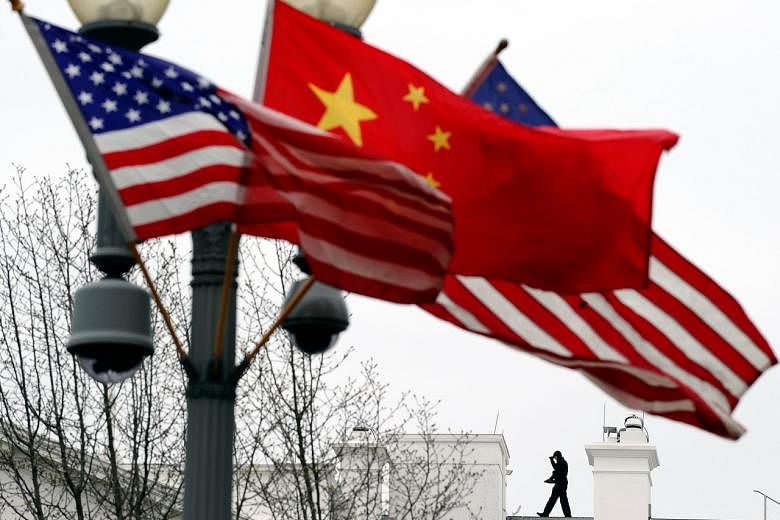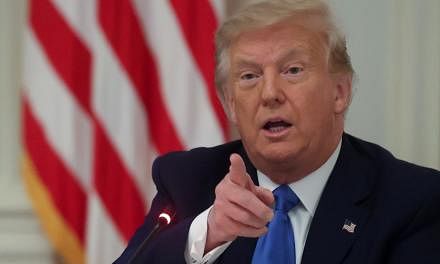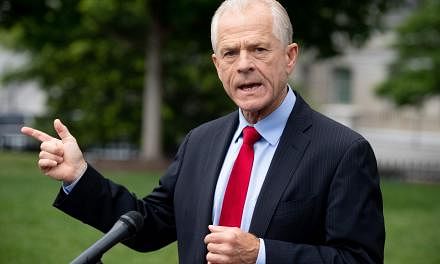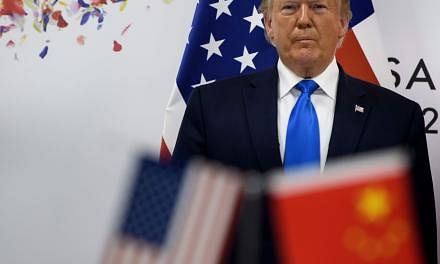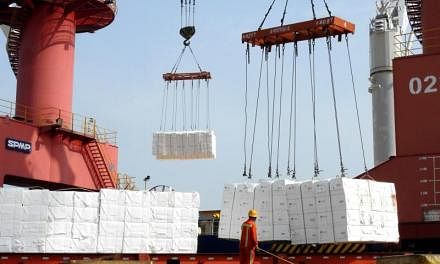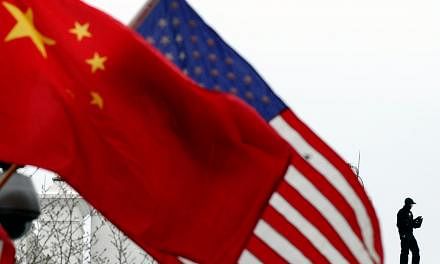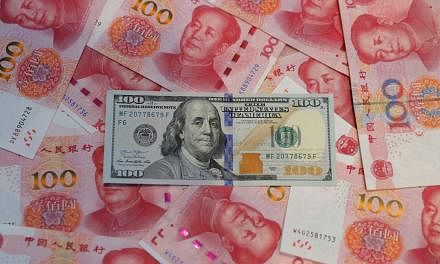The contest between the world's two biggest economies for power and influence will continue through the new year and beyond, veteran diplomat Tommy Koh has said.
The trade war between the United States and China will also have consequences for Asean countries, he said at a conference organised by the Bank of Singapore yesterday.
The recent partial trade agreement between the US and China, set to be signed this week, is unlikely to be a game changer, Professor Koh said.
"If my analysis is correct, then I do not expect to see any fundamental improvement, in 2020, of the relations between Washington and Beijing. This will have ramifications for us. For example, Asean will find it increasingly difficult to be friends with both," he said.
The new US policy, which enjoys bipartisan support, is to prevent China from becoming a superpower, to decouple the two economies, to frustrate China's ambition to dominate advanced technology industries and to stop Beijing from making East Asia a Chinese sphere of influence, he said.
Details of the US-China Phase 1 agreement reached on Dec 13 are scant. But White House officials say Beijing has agreed to boost purchases of US goods and services by as much as US$200 billion (S$270 billion) within two years, including tens of billions worth of farm products.
The US is expected to cut the import tariffs from 15 per cent to 7.5 per cent on more than US$100 billion of Chinese imports as soon as the agreement is implemented. President Donald Trump has called it a "very large and comprehensive" deal.
The trade war has roiled supply chains and investment flows across the world. Asian economies that count the US and China as their top trading partners are hurt the most.
For Asean, which has close relations with both the US and China, the conflict is a diplomatic nightmare as well.
So far, both the US and China see a neutral Asean in their national interest, said Prof Koh. But some members do have their own policy imperatives and it has been difficult to keep a united stance on the issue, he added. However, countries across Asia, Africa, Europe and Latin America continue to support free trade, regional economic integration and multilateralism.
That is in contrast to the US, which has tilted towards protectionism, unilateralism and economic nationalism.
"To use an analogy from Star Wars, I am sorry to say that the United States has gone over to the dark side," he said.
Despite these challenges, Prof Koh believes, North-east and South-east Asian economies will continue to grow. The Chinese economy will surpass that of the US in size, and by 2030, Asean will be the fourth-largest economy in the world, he said.
